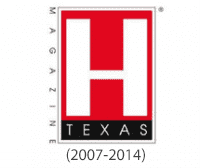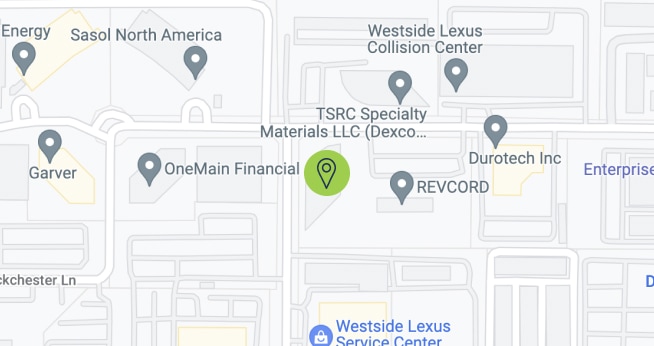Do I Need Personal Injury Protection in Texas?

Personal injury protection (PIP) is mandatory in Texas, although drivers can opt out of the insurance. All drivers in the state are offered PIP as part of their liability insurance. Coverage extends to the driver of the vehicle and any of the passengers that were in the vehicle at the time of the accident.
Why is PIP Coverage Important?
PIP is important for drivers because it covers the unexpected. As a driver, PIP offers coverage for the following circumstances:
- You’re injured and the other driver flees the scene and is never found
- You’re injured and the other driver doesn’t have insurance
- The other driver has insurance, but not enough to cover your medical expenses
PIP helps provide you with peace of mind that if you’re involved in an accident, even if the opposing driver speeds away, you’ll be covered. With one reportable crash every 56 seconds on Texas roadways, it’s important to have additional coverage as a driver. Medical bills can quickly pile up otherwise.
Claiming PIP will not cause your insurance rates to go up so there is no reason not to claim it. The only time your insurance is impacted is if you cause an accident with damage over $1,000. In fact, many car accident attorneys view PIP as free money. It’s easily accessible, usually within weeks or a month after your accident. You can use it to pay for your initial recovery while your attorney works on building a case against the other driver’s insurance company. If you have questions about whether or not you should claim PIP, talk to a car accident attorney for free advice.
PIP vs. Med-Pay
Texas drivers are able, by law, to receive $2,500 in PIP coverage from insurers. You can also pay more for higher coverage amounts of $5,000 to $10,000 for added financial protection. Texas has over 265,000 people suffering from car accident-related injuries annually and 17,500+ suffering serious injuries. Contact our car accident injury attorneys today.
The additional financial protection helps absorb some of the costs of an accident.
Under PIP, the following coverage is offered:
- $2,500 or more in coverage
- Coverage for policyholders, in-house family members, and/or drivers are given permission to drive the covered vehicle
- Reasonable medical expenses relating to the accident within 3 years of the accident date
- Funeral expenses
- 80% of lost wages or essential services for someone unemployed, such as childcare
While PIP is required to be offered to policyholders, Med-Pay coverage is not required.
Med-Pay is similar to PIP and not required to be offered to drivers. Coverage is less expansive and offers:
- Accident-related expenses for one year
- No chiropractic care
- Health insurance deductible and co-pay reimbursement
You also won’t receive any pay for lost wages or essential services if you’re unemployed.
In Texas drivers opt for PIP far more than MedPay. The main reason for this is that PIP covers lost wages. If you are injured in an accident and unable to work for a few days or a couple of weeks, you can make a claim. MedPay often makes sense for drivers who are retired and wouldn’t benefit from recovering from lost wages.
Texas Minimum Auto Insurance Coverage 2020
Texas is known for having 30/60/25 coverage. This coverage outlines the minimum liability coverage that a policyholder is required to obtain if they live and drive in Texas. You’re free to pay for more coverage, but the higher the coverage, the more your policy costs will rise.
Minimum Liability Coverage
While coverage minimums can increase, they’re set as the following in 2020:
- $30,000 per person in bodily injury liability
- $60,000 per accident in bodily injury liability
- $25,000 per accident in property damage liability
These are the mandated requirements by Texas law. If you’re leasing or financing an auto, the lender has the right to demand that you have higher coverage limits. A general rule of thumb is that you’ll need to have physical damage coverage, often called collision or full coverage when you do not own the vehicle outright.
Personal Injury Protection
Under Sec 1952.152, insurers must offer PIP to their policyholders. Coverage can be in a supplemental policy or part of an auto liability policy. As a policyholder, it is your right to decline coverage for PIP.
If you want to decline the coverage, you’ll need to submit your request to decline coverage in writing.
Anyone that does not have the minimum required coverage in Texas faces fines, vehicle impounds, vehicle registration suspension and potential SR-22 certificate filing.
When you have adequate insurance, it protects yourself and other drivers on the road. Insurance will reduce your personal liability in an accident to ensure that your personal assets are safe if someone related to the accident sues you.
How Does PIP Work in Texas?
PIP is an extra protection that doesn’t consider who caused the accident. Whether you were clearly at-fault and caused the accident or a hit-and-run driver caused the accident, PIP will provide you and passengers in the vehicle with vital protections.
PIP can be used for;
- Your medical bills
- Passenger medical bills
- Lost wages
- Some non-medical costs
- Rehab costs
- Funeral expenses
- Survivor benefits
PIP doesn’t have a wait time: it’s paid out regardless of fault. When you sue another driver or have to wait on the insurer to determine fault, your bills are still accruing. PIP claims must be paid regardless of fault, so they offer a blanket of protection to motorists.
If you’ve been injured in an accident dealing with insurance companies can be tedious and frustrating to figure out whose insurance is going to cover your injuries. It’s best if you speak to a car accident attorney. They can handle your case on contingency, meaning the attorney only gets paid when they get a settlement for you.
You should spend your time getting treated for your injuries and back to work. Contact Fleming Law today for a free consultation 713-221-6800.

Brendan received his JD from South Texas College of Law and his MBA from Baylor University. He then began his legal career as in-house counsel for a publicly-traded company, advising on matters such as mergers and acquisitions, securities, compliance, and general corporate transactions. He then worked at a national law firm in which he represented commercial banks, private equity firms, and business owners in complex transactions before joining Fleming Law, Brendan uses his considerable knowledge of business-related matters by working on cases involving business law, real estate law, and contracts. Connect with me on LinkedIn








